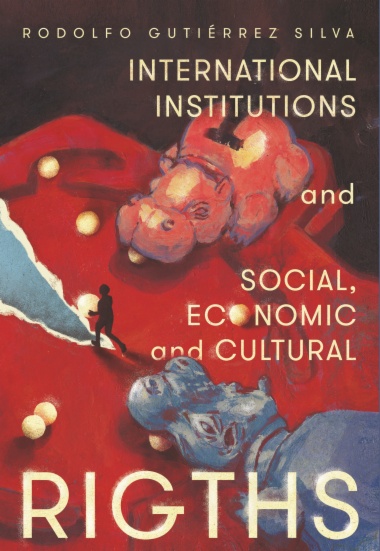In recent years we have witnessed a great increase in knowledge and technology worldwide which is available to all. However, despite this progress, we still have the same International Institutions and mechanisms that we designed after the Second World War. These institutions are characterized by fragmentation, structural dysfunc- tions such as corruption, lack of resources, and a lack of institutional capacity. The aim of this book is to evaluate the challenges facing International Institutions in the protection of Economic, Social, and Cultural Rights. More specifically, it seeks to detect different patterns in two types of actors that include international financial institutions and institutions of the universal system, such as the United Nations Refugee Agency. The methodology includes a design of comparative documentary research and case study evaluation. This includes an evaluation of several cases that analyse the role of International Institutions and their interaction with human rights. Trying to find common patterns in different structures and processes gives us some indication, an image of the type of problems these institutions currently face. The cases studied in this research reveal a series of challenges international institutions are facing that range from strengthening organizational and strategic aspects to overall strengthening institutional capacity. However, the main challenge encountered is the development of intentional institutional reflexivity. This implies the adoption, by international ins- titutions, of a new orientation to principles and values. The promotion of this new approach must start with a complete restructuration at the world level.
- Cover
- Title page
- Copyright page
- Content
- Preface
- Introduction
- Recursive relationships and mutual recognition
- Introduction
- The Emergence of the Individualistic Security State in Latin America
- The Emergence of the Latin American Agency
- Objective Recursivity and Subjective Recursivity
- Conclusion
- Bibliography
- Improvements are bought at the price of social dislocations. to what extent do postwashington ideas and practices of development take polany’s warning into account?
- Introduction
- The Great Transformation, Improvements, and Social Dislocations
- The dislocations of the Washington Consensus
- The PostWashington Consensus in theory according to the World Bank
- The Post-Washington Consensus in practice and the rise of social dislocations
- A solution to the dislocations the Post-Washington Ideas
- Conclusion
- Bibliography
- Social security and social justice
- Introduction
- ILO on Social Security
- International Covenant on Economic Social and Cultural Rights
- The World Bank on Social Security
- High levels of Inequalities
- Conclusion
- Bibliography
- A wall that protects internal ends
- Introduction
- The Growth of Accountability Mechanisms
- The World Bank Inspection Panel
- International Finance Corporation
- Asian Development Bank
- Claim heard by the ifc (the Case of Chile)
- Claim heard by the Inspection Panel (The case of Bangladesh)
- Conclusion
- Bibliography
- The impact of the cartagena declaration in latin america – the case of ecuador
- Introduction
- The Cartagena declaration
- The Mexico Plan of Action
- The Situation in Ecuador
- Latin American Action Plan
- Conclusion
- Bibliography
- Non-contributive pensions from a human rights perspective. the cases of spain, colombia, and chile
- Introduction
- Non-Contributory Pensions
- Non-Contributory Pensions from a Human Rights Approach
- The Program “Colombia Mayor”
- The Basic Solidarity Pension for Old Age in Chile
- Non-contributory pensions in Spain
- Evaluation from a Human Rights Approach
- Conclusion
- Bibliography
- General conclusions
- Intentional Institutional Reflexivity. A new sense of orientation towards Principles and Values
- Bibliography
- About the author

